The man who is set to take over Newcastle United
He is perhaps the most important person in Saudi Arabia outside of royalty. But as a Harvard graduate without a wealthy background, Yasir al-Rumayyan may not be what onlookers would expect from the head of the sovereign wealth fund, writes Kim Sengupta

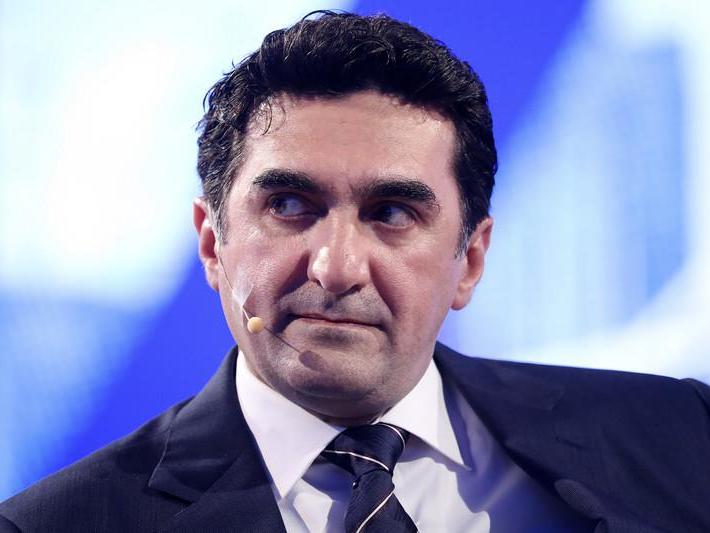
The coronavirus pandemic has been a seismic shock to the world of professional football. The effect has been the most dramatic in Europe where the astonishing riches in the upper echelon of the game suddenly look under great threat. But behind the dire predictions of clubs going bankrupt, the disputes over how and when to kick off matches once again, and the rancour over players being asked to take pay cuts, one club is looking forward to an injection of money which promises to take it back to the glory days of the distant past.
Newcastle United, which has been enmeshed in accusations and recriminations between fans and its owner of 13 years, Mike Ashley, is in the process of being acquired by a company backed by the sovereign wealth fund of Saudi Arabia, a body chaired by Yasir al-Rumayyan. It comes when Ashley, the owner of Sports Direct and House of Fraser, is reported to have lost an estimated £800m in financial fractures caused by Covid-19. The offer on the table for Newcastle is said to be £300m. This is not a huge strain on the finances of the Saudi Public Investment Fund (PIF), which is valued at $320bn (£260bn) with a declared intention of raising this to $400bn by this year.
The names of a number of people in the public eye, to a greater or lesser degree, have been linked in the media to the takeover, codenamed Project Zebra, after Newcastle’s black and white strip, by the consortium. Use of the club’s nickname, the Magpies, was apparently viewed as a giveaway in the commercially sensitive early days of the negotiations.
Such figures include Carla DiBello, a friend of the Kardashian family. Her boutique consulting firm, CDB Advisory, is said to be advising the PIF. She had, a number of news items revealed, even attended the wedding of Kim Kardsashian to Kanye West. Then there is Amanda Staveley, a former girlfriend of Prince Andrew, but also a successful businesswoman with strong Middle East connections. Her company, PCP Capital Partners, will own 10 per cent of the club if the deal goes through.
The remaining 10 per cent would be owned by Reuben Brothers, David and Simon, born in Mumbai, who came to London with their mother in the 1950s and are now, according to the Sunday Times Rich List, the second wealthiest family in the UK with a net worth of £16bn, level with the Hinduja brothers and behind James Dyson on £16.2bn.

Compared with these names, little has been publicised about Al-Rumayyan, the sole director of a company, NCUK Investment Limited, which was set up in January as the projected takeover got under way. He is expected to become the chairman of Newcastle United Football Club, if or when the deal goes through.
Al-Rumayyan is probably now the most important man in Saudi Arabia outside the senior ranks of the royal family. As well as heading the sovereign fund, he holds the country’s top corporate job as the chairman of Saudi Aramco, the oil giant that is regularly described as the world’s most profitable company.
Even more importantly in the context of the state of affairs in the kingdom, 50-year-old Al-Rumayyan is said to be in the closest circle of Crown Prince Mohammed bin Salman, or MBS as he has become widely known. A photograph of the two men hiking on Mount Lawz, in the northwest of the country, in T-shirts, shorts and baseball caps went viral when it appeared on social media.
The timeline of the two men’s rise, Al-Rumayyan in business and MBS to becoming the de facto ruler of Saudi Arabia, has more or less coincided.
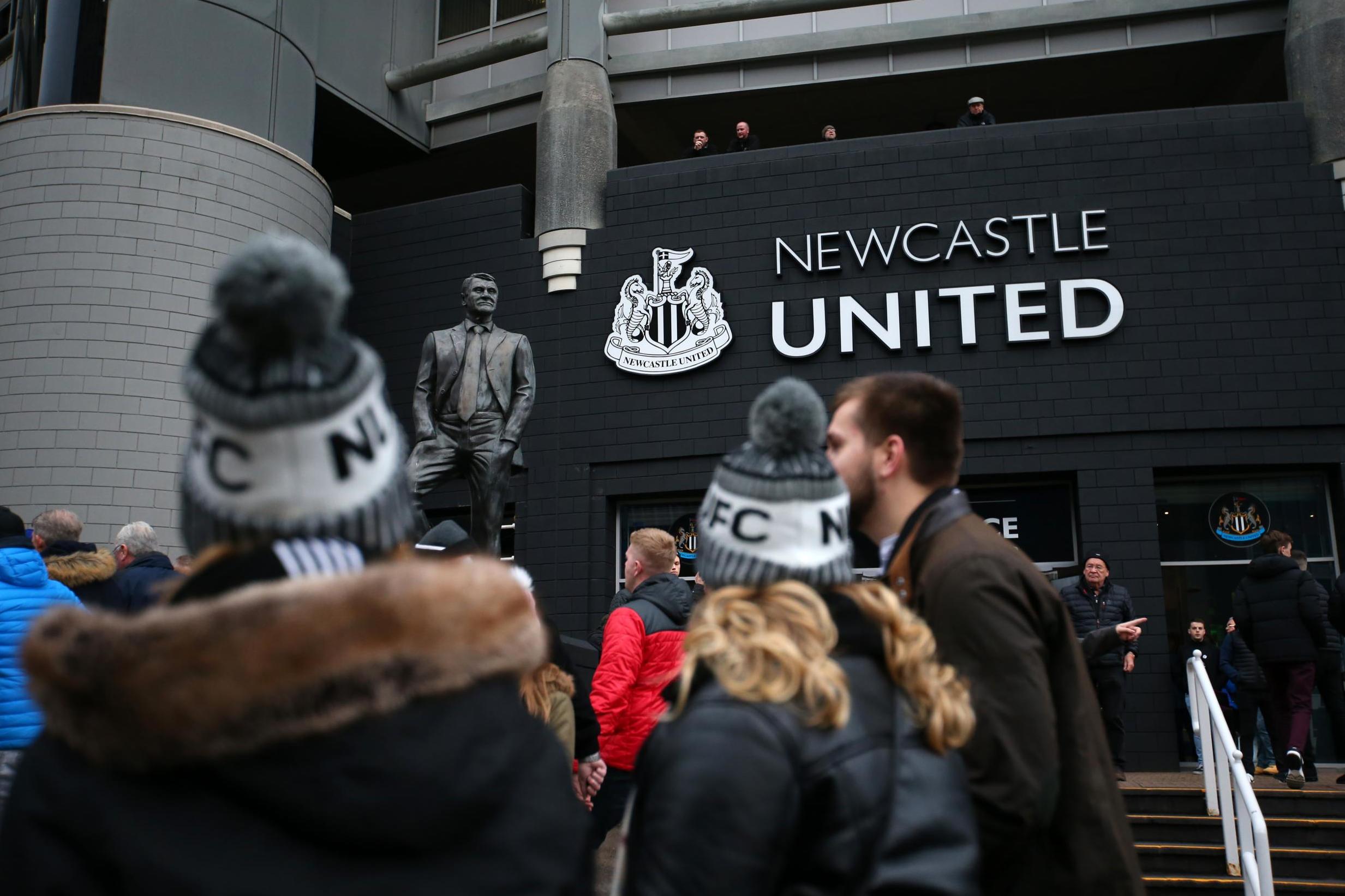
There was no natural social connection. Al-Rumayyan, by most accounts, does not come from a particularly wealthy background. He joined Harvard Business School’s General Management Programme after studying at King Faisal University in Hofuf, and then started work at Saudi Hollandi Bank, eventually becoming head of international brokerage. His next job was at Saudi Fransi Capital, a financial services company, where he became chief executive officer in 2011.
Four years later Al-Rumayyan met MBS and was headhunted for a job as advisor to the Royal Court. “I didn’t know him well, I have heard of him. I got a call. I thought it was going to be an interview, but he said, ‘Here’s what I want you to do, one, two, three, four…’ He was an amazing person to meet, charisma, vision, he knew exactly what he wanted to do and say,” Al-Rumayyan was to recall later. “He asked when I could start, I said about three months, but he said it could be no more than a month. Next week I got a call saying, ‘You’ve got to start immediately.’”
Objections made against the planned new ownership … centre on Saudi Arabia’s human rights record and its treatment of opponents, from the involvement of senior officials close to MBS in the abduction and murder of the journalist
Al-Rumayyan said he had no hesitation in joining and his wife, Aisha Al Kahmoos, and their children fully backed him: “We are all proud to be Saudis. We all want to participate in the positive changes the country is going through.”
Steffen Hertog, a specialist in the Gulf at the London School of Economics, described Al-Rumayyan’s ascent as “remarkable”. He told Bloomberg: “He is not only in charge of MBS’ key vehicle for diversifying the local economy and Saudi Arabia’s foreign asset base, but he also plays an important role at the court.”
The next step in Al-Rumayyan’s rise to prominence came after a meeting during a flight with MBS. “Part of what the crown prince was asking me to do was find a governor, managing director, CEO for the PIF. I brought in about 80 different names and he was, ‘No, no, no’. And I said, ‘Well if we can’t find anyone, I can do it.’”
King Salman had taken the Saudi throne in 2015 and a few months later MBS was named deputy crown prince and tasked with reforming the economy and moving it away from the overwhelming dependence on oil. As part of MBS’ team, Al-Rumayyan was closely involved in the blueprint for sweeping changes, Vision 2030, which still remains its strategy.
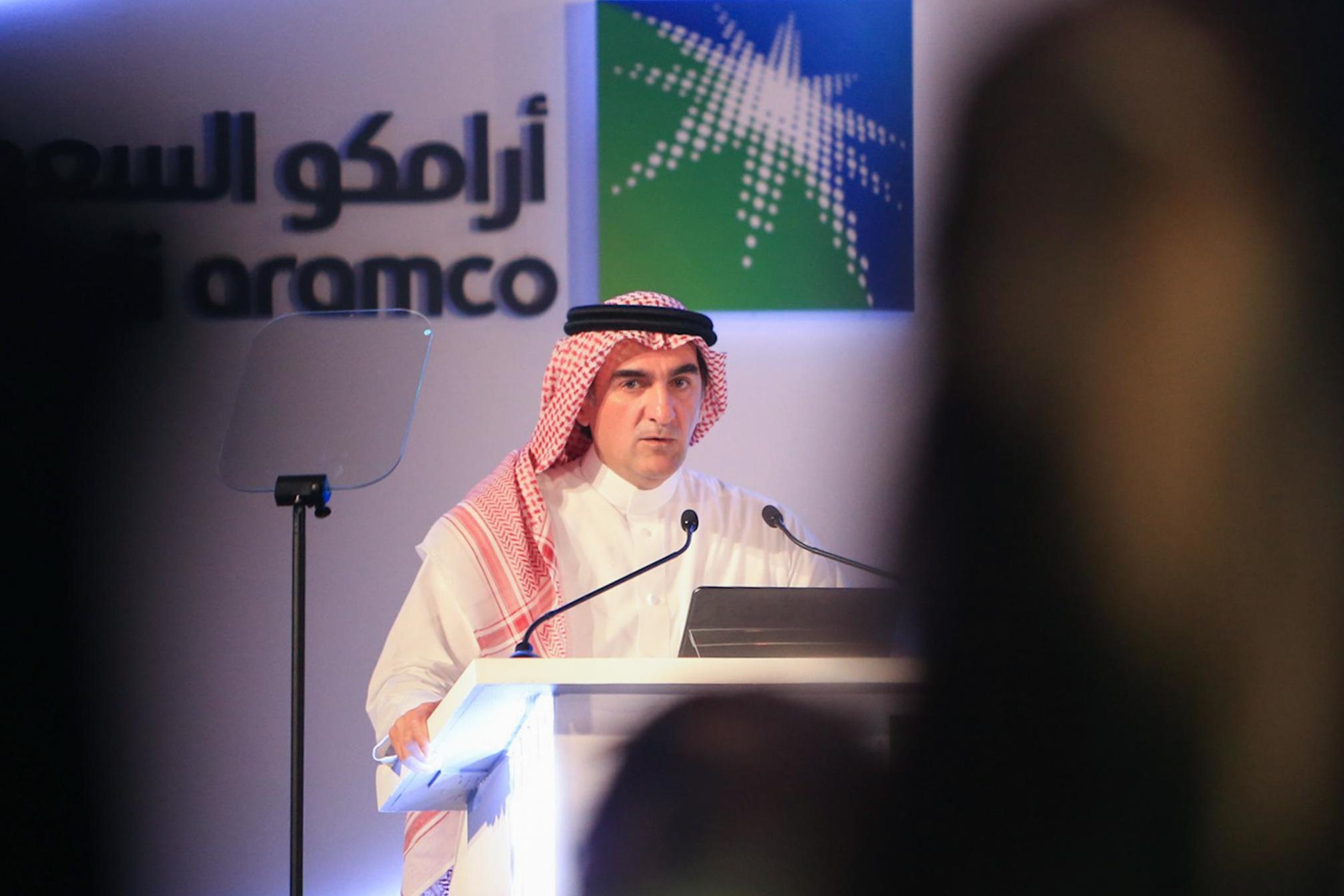
As MBS began to take control of levers of power in Saudi Arabia, the PIF under Al-Rumayyan changed from a cautious domestic holding company to one of the biggest investors in global technology, accumulating stakes in Tesla, Uber, SoftBank, T-Mobile, Alibaba and Yahoo, among others. The sovereign fund has also branched out into holding a growing number of sporting events. Al-Rumayyan himself is an enthusiastic golfer, playing off a handicap of 12: he has been photographed arm-in-arm with former Masters winner Sergio Garcia and other big hitters.
There has been funding for a European Tour golf fixture with, among others, Phil Mickelson and Dustin Johnson, the heavyweight boxing rematch between Anthony Joshua and Andy Ruiz, and two Italian Super Cup finals in football. Al-Rumayyan and the takeover consortium will, as standard, face the Premier League’s due diligence “fit and proper persons” test for directors and owners.
Speaking to Michael Milken, the American financier and philanthropist, at a business conference on Middle East and Africa last year, Al-Rumayyan spoke about the questions faced on the sovereign fund’s strategy on investment including in sport.
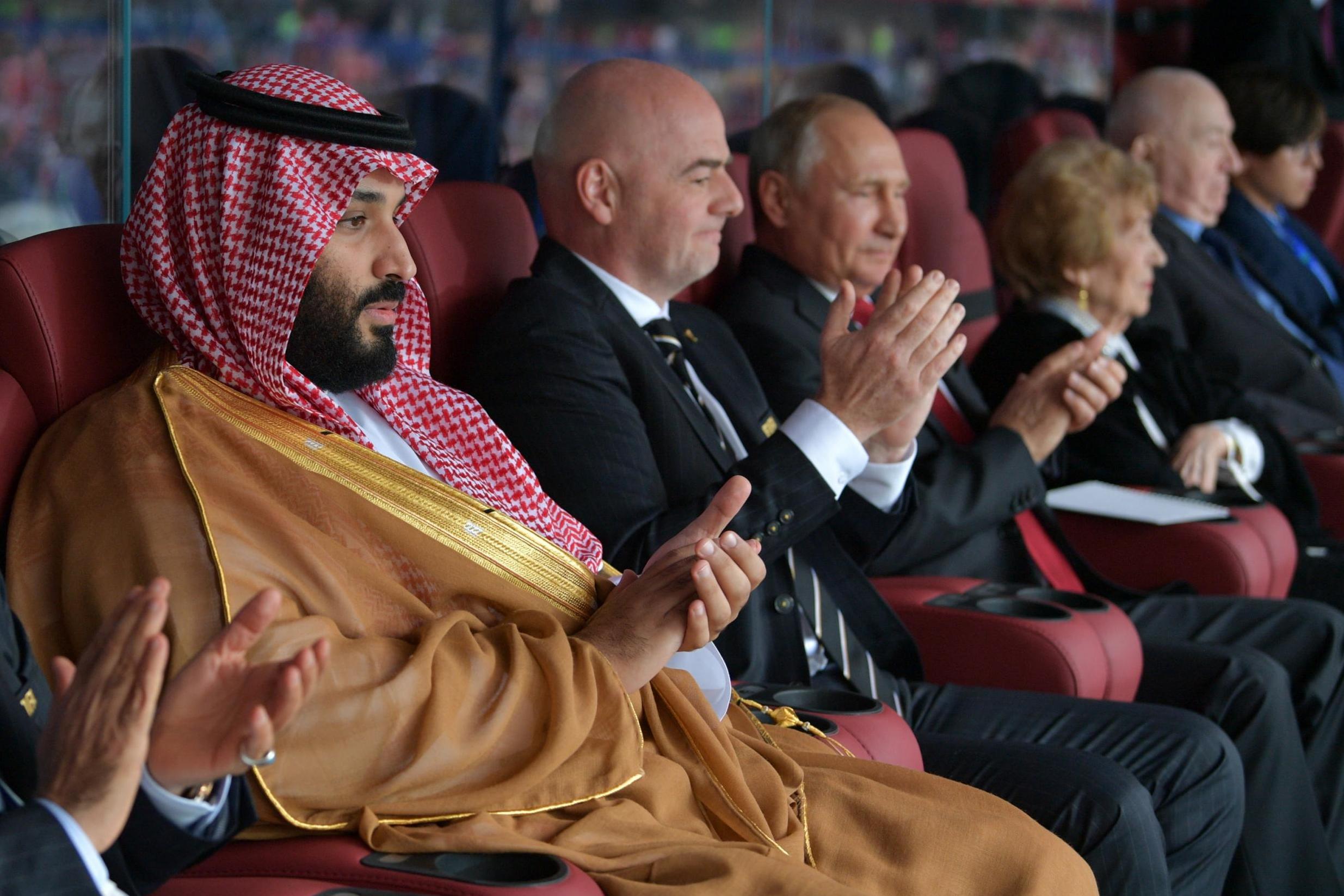
“My answer is very short and sweet, double digit IRR (internal rate of return). I have no prejudice against any geography and region – the first thing that we look at is, of course, the commercial returns if it is international,” he said.
“But at the same time, if we have a strategic thing like in sports, for instance, we don’t mind to go lower with the IRRs as long as we are bringing something back to the country. Why do we need great returns? Domestically or internationally for two reasons. The first thing is the profitably and the commercial aspect, and the second is the sustainability of the thing.”
Some analysts hold that the seeming acceptance of a low IRR on a sporting investment may count against Premier League rules on unfair subsidies to a club. Other Middle Eastern owners have faced allegations on this count.
But the objections made against the planned new ownership go much further than that. They centre on Saudi Arabia’s human rights record and its treatment of opponents, from the involvement of senior officials close to MBS in the abduction and murder of the journalist Jamal Khashoggi, to the jailing of activists, including a number of women, to the destruction caused by the Yemen war.
Among those who have asked the Premier League to block the sale has been Khashoggi’s widow, Hatice Cengiz, and human rights groups including Amnesty International and another called Fair/Square, as well as individual Saudi dissidents.
There have also been objections from the broadcast company beIN Sports, which has accused the Saudis of facilitating the piracy of Premier League football rights in the Middle East through the station beoutQ. The Saudi broadcast company Arabsat has denied that beoutQ uses its frequencies for illegal broadcasts and has accused beIN of “defamation attempts and misleading campaigns”.
The issue is mired in recriminations. BeIn Sports is based in Qatar, a country that has been involved in a prolonged and bitter confrontation with a Saudi-led bloc of Gulf states. The Qatari government has been accused of funding Islamist extremism abroad and has been a long-term supporter of the Muslim Brotherhood. It has also faced extensive criticism over the living conditions of migrant workers, mainly from south Asia, used to build its stadiums for the 2022 World Cup.

Qatar, Saudi officials point out, owns the Paris Saint-Germain Football Club in France and sponsors Bayern Munich and Roma in Germany and Italy, and has a “foundation” project with Real Madrid. The Spanish club is also sponsored by Emirates, and Manchester City is owned by Mansour bin Zayed bin Khalifa Al Nahyan, the deputy prime minister of the UAE, a country accused of interference in the affairs of other nations, most currently in Libya.
Another Premier League club, Sheffield United, already has Saudi owners, Prince Abdullah bin Musa’id bin Abdulaziz, the son of Prince Musa’id bin Abdulaziz Al Saud, a descendant of Ibn Saud, who became the Saudi King in 1932.
Two other clubs, Southampton, partly, and Wolverhampton Wanderers, wholly, have Chinese ownership. The Chinese government has put more than a million Uighur Muslims in prison camps and imprisoned dozens of protestors in Hong Kong. It has also been accused of hiding the beginning of the coronavirus pandemic, a fatal delay which may have led to such a devastating human and economic cost around the world.
Large Chinese conglomerates cannot, it has been claimed, operate without the approval of the Chinese government. When US officials were asked for evidence of the telecommunication giant Huawei’s alleged role in spying, they pointed to the Chinese government’s own national intelligence laws of 2017, which stipulate “any organisation and citizen” shall “support and cooperate in national intelligence work”.

British, American and other intelligence agencies have also charted the Chinese Communist Party’s systematic infiltration of private companies. The director of the US National Counterintelligence and Security Centre used these two examples in claiming that “Chinese company relationships with the Chinese government aren’t like private sector company relationships with governments in the west”.
There is no suggestion that owners of Southampton or the Wolves have engaged in any illicit activities.
$320 billion
The value of the Saudi Public Investment Fund
The fit and proper test would also apply to Al-Rumayyan personally if he becomes chairman of Newcastle. There has not been any known allegation of malpractice against him and he has largely avoided commenting on political issues.
Crown Prince Mohammed bin Salman faced strong criticism when, during his anti-corruption drive three years ago, he locked up around 500 people – princes, ministers, businessmen – at the Ritz-Carlton hotel in Riyadh, accusing them of fraud. Around $107bn was eventually paid by the detainees to the Saudi exchequer. Officials claimed it was an agreed settlement; critics said it was extortion and MBS consolidating his power by getting rid of rivals.
Al-Rumayyan subsequently maintained that the anti-corruption drive was a genuine attempt to eliminate graft. “The corruption level has decreased tremendously with King Salman and the crown prince in office… you can’t find any corruption now,” he insisted.
The ethos of the public good, he said, is a key factor in how the sovereign fund operates. “Every international investment opportunity we review, my first thought is always how our potential investment will ultimately help Saudi Arabia,” he said. “It’s the country’s money. It’s not mine, it’s not the crown prince’s, it’s not the king’s. It’s our name, the Public Investment Fund – public.”
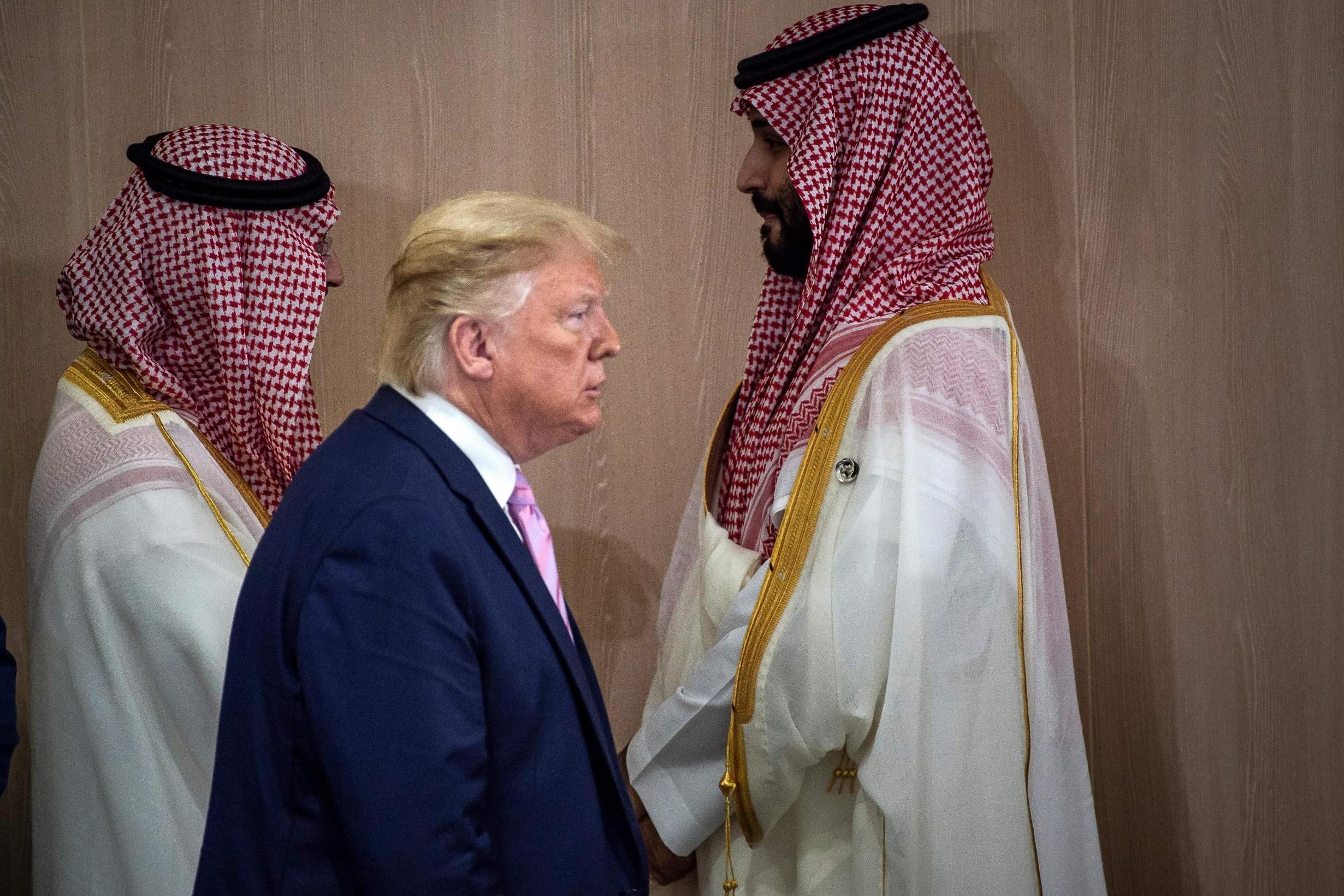
This may well sound like reading from the script. But, a Saudi businessman with personal and professional dealings with the royal family, said: “I think he does believe in that. We haven’t heard of any corruption involving him. He is not someone who is just after making money for himself, although, of course, he is richly rewarded. But it’s common sense, as someone in the financial field he knows that you can’t have efficient financial institutions if the system is weakened by endemic corruption.
“Yasir Al-Rumayyan had shown initiative, which is one of the reasons he was picked, I think. He did well at Fransi and got praised for it. Some of it may be down to luck, the company already had some important business set up which was finished after he joined, and he got credit for them. But he was there at the right time to complete them. He also opened an office in Dubai when a lot of Saudi enterprises were too inward-looking. He saw it as a step in attracting foreign investment into Saudi Arabia and that was right. That branch was shot down after he left, that was a mistake.
“As far as him being a valued advisor to the crown prince, that is a good thing as far as many of us are concerned. It’s a change in the right direction from some of the very dubious people he has depended upon in the past.”
The businessman cautioned: “But these are difficult times for Saudi Arabia. We have been caught between the virus epidemic and the fall in oil prices at the same time. What’s happened to the oil price really shows the danger of relying on one source of revenue.”
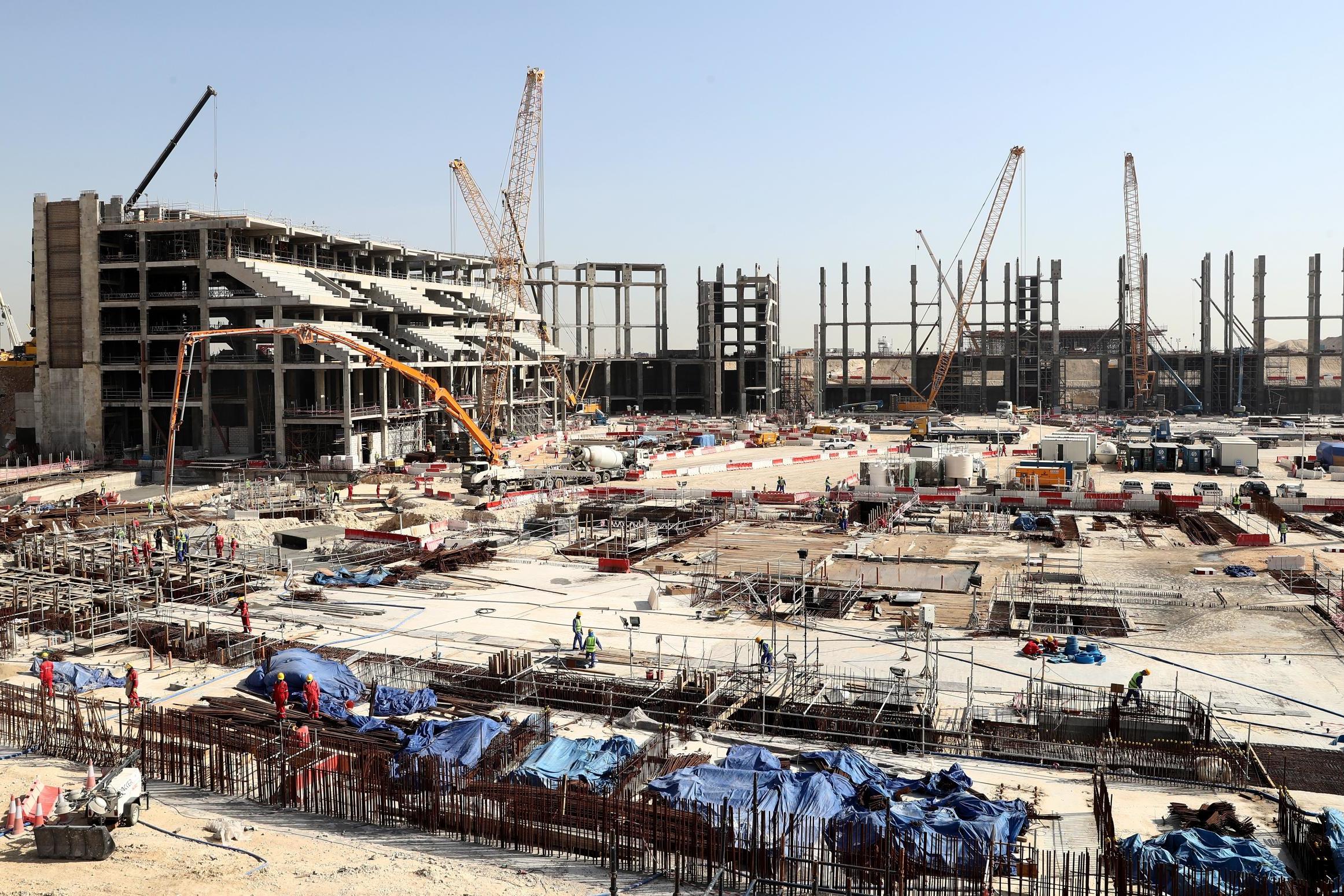
Aramco recently posted a 25 per cent fall in profit. Its net profits for the first quarter fell to 62.5 billion riyals (£13.7bn) from 83.3 billion a year earlier. There has been a sharp decrease in demand due to the Covid-19 pandemic at a time when there has been a two-thirds drop in the global price of oil.
The fall was due to a month-long price war between Russia and Saudi Arabia. That has ended, for the time being, with the Organisation of Petroleum Exporting Countries (Opec) agreeing to a deal which could result in 9.7 million barrels a day being held back from the global market: the largest ever production cut ever negotiated by the cartel.
Aramco’s CEO Amin Nasser stated: “Looking ahead to the remainder of 2020, we expect the impact of the Covid-19 pandemic on global energy demand and oil prices to weigh on our earnings.” However, he continued: “Longer term we remain confident that demand for energy will rebound as global economies recover.”
Before the spread of the pandemic, Al-Rumayyan had said at a conference in Dhahran that opting for new energy sources to oil within a few years was unlikely to work: major changes in the sector take a long time to materialise and the oil industry is not currently facing real competition from alternative energy, he said.

Before the coronavirus crisis, however, global commerce was fuelled by 100 million barrels of oil a day. Demand is now down by 35 per cent. “The [Opec] agreement provides the expectation of stability,” Rene Ortiz, the Ecuadorian energy minister and a former secretary general of Opec, told The New York Times. “But whether the markets react accordingly is a different ballgame.”
It is not just the commercial world but the political one which may see significant changes. The collapse of oil prices hit American producers hard. Donald Trump, already facing an economic crisis due to coronavirus, his ratings falling in the poll due to his chaotic handling of the pandemic and facing an election in November, had stepped into the dispute between Saudi Arabia and Russia.
The US president has been credited with ending the impasse. He did so, according to diplomats, by pressurising the crown prince, effectively threatening him with withdrawing military backing and allowing Congress to take sanctions against the kingdom.
There is a growing feeling in the Gulf states that despite all the American weaponry they had bought at Trump’s insistent urging, they cannot trust him to stand by them in times of crisis.
The US has announced that it will withdraw two Patriot surface-to-air missile batteries to protect oil installations in Saudi Arabia. They were deployed after a series of drones and missiles targeted two Aramco facilities in Abqaiq and Khurasis, shutting down 5.7 million barrels of production per day. Houthi militias in Yemen claimed responsibility. Both Riyadh and Washington blamed their backers, Iran, for the attacks. Tehran denied the charge.
The Saudis say they will replace the American Patriots with their own missile systems. But there are adjustments taking place in the politics of the neighbourhood. The UAE, part of the Sunni bloc long locked in acrimonious relations with Shia Iran, has been shipping medical equipment to Tehran, which has suffered severely from the coronavirus pandemic amid ongoing US sanctions.
The UAE has also released $700m of frozen funds to Iran. Saudi Arabia is not yet part of the rapprochement, but that may well change with Tehran stating that it wants to improve relations with Riyadh.
Al-Rumayyan stated recently that the PIF would be keen on post-pandemic investments when bargains could be had. “We are looking into any opportunity. Once the economy is open and up, I think we will see a lot of opportunities,” he said, citing airlines, entertainment companies and energy as examples.
But from football in Newcastle to investments and oil sales around the world, the head of Aramco and Saudi Arabia’s sovereign wealth fund will be facing an uncertain and unpredictable world with strong and difficult challenges.
Join our commenting forum
Join thought-provoking conversations, follow other Independent readers and see their replies
Comments
Bookmark popover
Removed from bookmarks